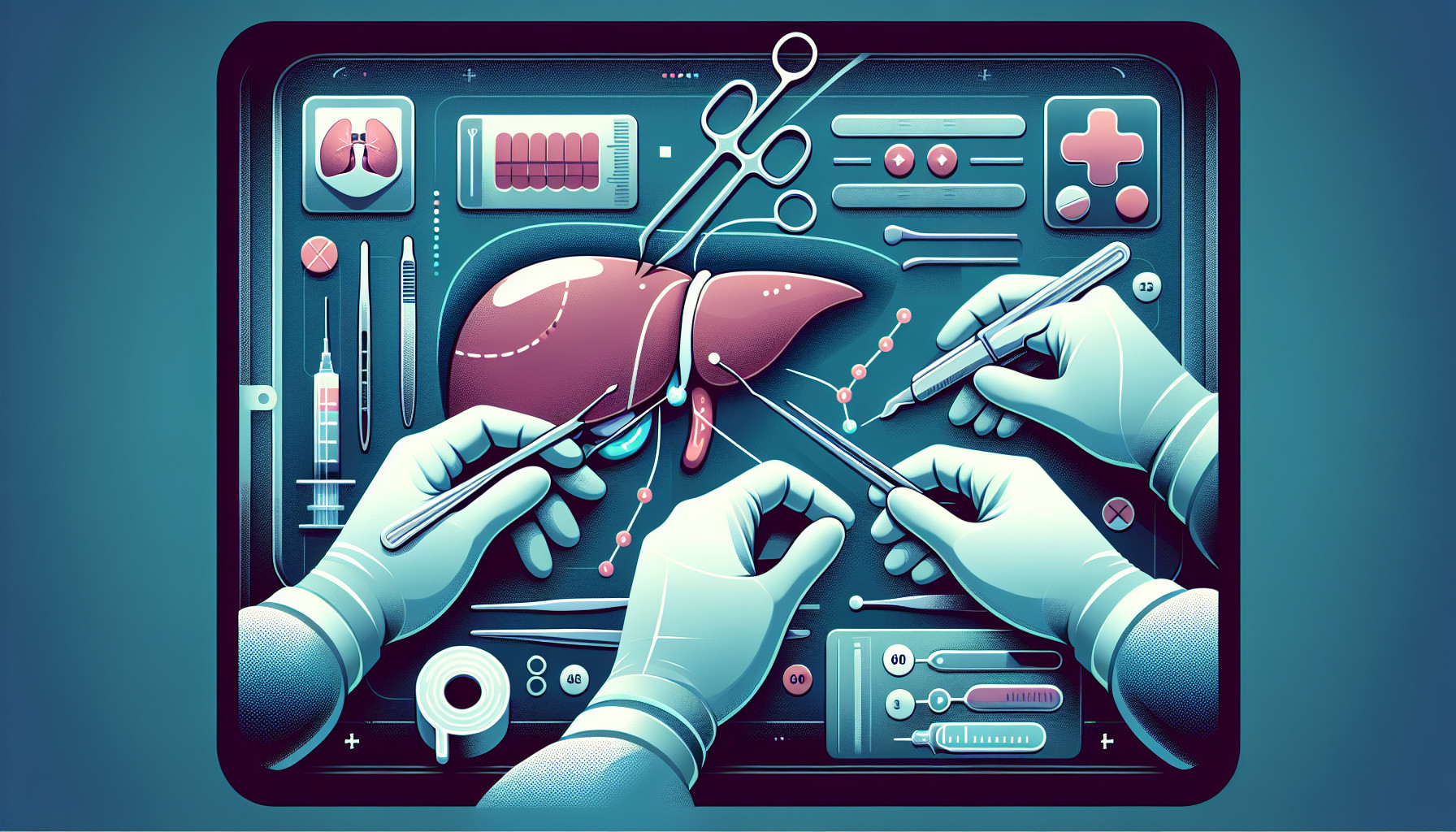Our Summary
This research paper discusses a study that was conducted to understand how safe and effective a specific type of liver biopsy is in children. A liver biopsy is a procedure that involves taking a small sample of liver tissue for examination to diagnose and stage liver diseases. The type of biopsy they used in this study is called endoscopic ultrasound-guided liver biopsy (EUS-LB), which has been reported to be as safe or safer than the more common type of liver biopsy.
The study looked at health records of children who had this procedure at Cincinnati Children’s Hospital Medical Center from March 2020 to April 2023. They included patients who were 21 years old or younger. The biopsy was performed using a fine needle and was either done through the stomach wall or the first part of the small intestine called the duodenum. The samples were then examined by expert pathologists.
The results showed that the procedure was successful in all the 83 patients included in the study, with most of them meeting the criteria of adequacy set by the American Association for the Study of Liver Diseases. Most patients had biopsies of both lobes of the liver, with the procedure usually being performed twice. The length of the samples was around 7.9 cm on average, and each patient had around 24 complete portal tracts (a specific part of the liver structure) examined.
There were a few mild complications in four patients, but none of them involved bleeding. Overall, the study concluded that this type of biopsy was well tolerated and yielded good quality samples in children, with a safety profile comparable to the more common type of liver biopsy.
FAQs
- What is the gold standard for diagnosing and staging liver diseases?
- How safe and effective is endoscopic ultrasound-guided liver biopsy (EUS-LB) in pediatric patients?
- How does the safety of EUS-LB compare to percutaneous liver biopsy in pediatric patients?
Doctor’s Tip
A helpful tip a doctor might tell a patient about liver biopsy is to avoid taking any blood-thinning medications or supplements for a certain period of time before the procedure to reduce the risk of bleeding during or after the biopsy. It is important to follow the doctor’s instructions carefully to ensure a safe and successful liver biopsy.
Suitable For
Patients who are typically recommended for liver biopsy include those with suspected liver diseases such as hepatitis, cirrhosis, fatty liver disease, autoimmune liver disease, liver cancer, and genetic liver disorders. Liver biopsy may also be recommended for patients with unexplained liver abnormalities, abnormal liver function tests, or monitoring of known liver conditions. In pediatric patients, liver biopsy may be recommended in cases of liver abnormalities, liver enzyme elevations, suspected liver diseases, or monitoring of liver conditions.
Timeline
Before liver biopsy:
- Patient presents with symptoms or abnormal liver function tests, leading to the decision to perform a liver biopsy
- Patient undergoes pre-procedure evaluation, including blood tests, imaging studies, and possibly a consultation with a hepatologist
- Patient is instructed on fasting requirements before the procedure and any necessary medications to discontinue
- Informed consent is obtained from the patient or their legal guardian
After liver biopsy:
- Patient is monitored for a period of time post-procedure for any immediate complications, such as bleeding or pain
- Patient may experience mild discomfort at the biopsy site for a few days
- Pathology results from the biopsy are reviewed by a pathologist and communicated to the patient or their healthcare provider
- Patient may follow up with their healthcare provider to discuss the results and determine any further treatment or management plans
What to Ask Your Doctor
- What is the reason for recommending a liver biopsy?
- How will the liver biopsy be performed (e.g., through EUS-LB)?
- What are the potential risks and complications associated with the liver biopsy procedure?
- How will the biopsy sample be analyzed and interpreted?
- How long will it take to receive the results of the liver biopsy?
- What alternative diagnostic tests or procedures could be considered instead of a liver biopsy?
- How will the results of the liver biopsy impact my treatment plan?
- Are there any specific post-procedure instructions or restrictions I should follow?
- Will I need to follow up with you after the liver biopsy, and if so, when?
- Are there any specific factors in my medical history that could affect the safety or efficacy of the liver biopsy procedure?
Reference
Authors: Schwartz TS, Mouzaki M, Berklite L, Lopez-Nunez OF, Miethke A, Xanthakos SA, Vitale DS. Journal: J Pediatr Gastroenterol Nutr. 2025 May;80(5):920-925. doi: 10.1002/jpn3.70001. Epub 2025 Feb 7. PMID: 39916514
